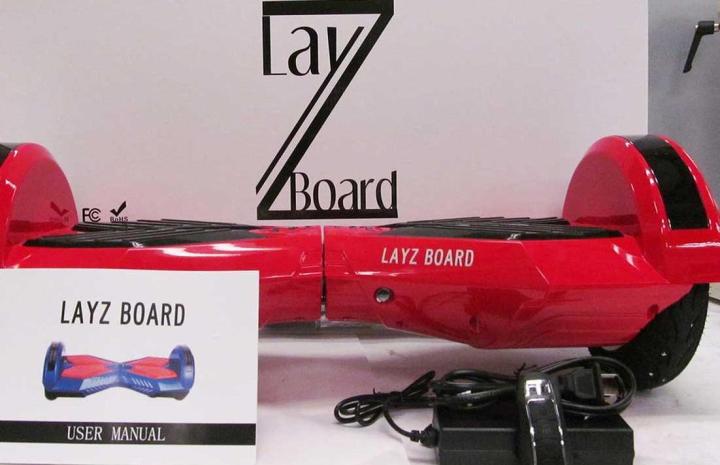
The CPSC first raised the alarm about the LayZ board in May following a house fire, also in Pennsylvania, which took the lives of two young children.
The LayZ hoverboard was manufactured in Shenzhen, China, and more than 3,000 units were imported into the U.S., the CPSC said. It added that it shouldn’t be confused with a similar model called the Lazyboard.
The consensus is that faulty batteries shipped with the board caused the fires, and as a consequence the safety body warned owners to “stop charging and stop using” the potentially dangerous device.
“Consumers who choose to dispose of their hoverboards should take them to a local recycling center for safe handling of the lithium-ion battery,” the CPSC said in a notice posted on its website on Tuesday, November 14.
It also issued recall notices on hoverboards made by seven other firms, namely Dollar Mania (Sonic Smart Wheels boards), Tech Drift, Digital Products iLive, iHoverspeed, Four Star Imports (Go Wheels board), Drone Nerds, and Salvage World (Smart Balance Wheel boards). Check out the CPSC’s tweet for direct links to each of the recall notices.
In all cases, the boards risk overheating and could, in a worst-case scenario, catch fire and even explode.
Yes, we’ve been here before
This latest news about dodgy hoverboards is likely to sound very familiar to many of you.
The boards, which in reality don’t hover but instead use wheels to trundle along the ground, were the big hit of the 2015 holiday season. Their sudden popularity prompted lots of overseas manufacturers to flood the market with their own versions, but their rush to do so resulted in many substandard units shipping with unstable lithium-ion batteries. Before long, there were reports of the boards — also known as personal transporters — going up in flames, sometimes taking a whole house with it.
Airlines banned them, Amazon stopped selling them, shippers refused to carry them, and more than half a million boards were recalled in the United States alone.
In January 2016, the CPSC even advised hoverboard owners to keep a fire extinguisher in their house in case the device exploded.


